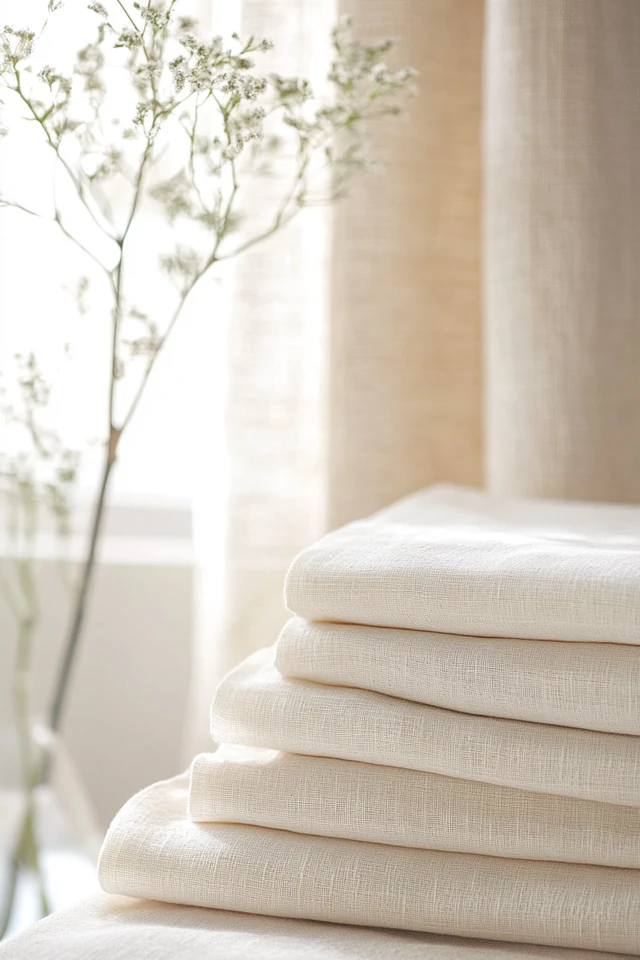Introduction
Life has a way of pulling us in a million directions, but your home should be the one place where you can breathe deeply and let it all go. Styling your room for a tranquil, stress-free vibe is one of the most rewarding ways to turn your space into a personal sanctuary. I remember doing this for my own room a few years ago, after one particularly chaotic week. My room felt cluttered, and it was anything but relaxing. I started small—clearing surfaces, lighting a candle, and adding soft blankets. Gradually, I introduced soothing colors, calming scents, and some natural elements. By the end, my space wasn’t just a room anymore; it was my escape.
Creating a stress-free room doesn’t require a total overhaul or a big budget. It’s all about being intentional with the elements you bring into the space and how they work together to create calm. In this guide, I’ll show you how to design a room that feels serene, balanced, and truly restorative.
Why Design a Tranquil Room?
Key Benefits
- Reduces Stress: A calming environment promotes relaxation and mental clarity.
- Improves Sleep: Soothing decor and lighting help create a sleep-friendly space.
- Boosts Mood: A harmonious room can uplift your spirits and encourage mindfulness.
- Enhances Focus: A clutter-free, serene space minimizes distractions and fosters focus.
1. Start With a Soothing Color Palette
Why It Works
Soft, neutral colors set the foundation for a peaceful environment.
How to Do It
- Opt for shades like beige, light gray, sage green, and pale blue, which are known for their calming properties.
- Use neutral tones as the base and add soft accents in complementary colors.
- Avoid bold or overly saturated hues that can feel stimulating.
- Incorporate warm whites or muted earth tones to create a sense of balance.
2. Declutter and Organize
Why It Works
A clean, clutter-free room clears your mind and creates a sense of order.
How to Do It
- Sort through your belongings and keep only what brings you joy or serves a purpose.
- Use storage solutions like woven baskets, bins, or furniture with built-in storage.
- Keep surfaces like nightstands and dressers clear, with only a few intentional decor items.
- Regularly tidy up to maintain a serene, organized space.
3. Incorporate Natural Elements
Why It Works
Nature has a grounding effect and helps create a connection to the outdoors.
How to Do It
- Add plants like ferns, snake plants, or peace lilies, which are low-maintenance and purify the air.
- Use natural materials like wood, rattan, or stone for furniture and decor.
- Display dried flowers or pampas grass in ceramic vases for an earthy touch.
- Incorporate decor inspired by nature, like shell or driftwood accents.
4. Layer Textures for Comfort
Why It Works
Soft, tactile elements create a cozy, inviting atmosphere.
How to Do It
- Use chunky knit throws, velvet cushions, or faux fur rugs for warmth and comfort.
- Incorporate linen or cotton fabrics for bedding and curtains to keep things light and breathable.
- Mix smooth textures like glass or ceramic with soft, tactile materials like woven or quilted fabrics.
- Layer rugs—such as a jute rug topped with a soft, plush rug—for added depth.
5. Focus on Lighting
Why It Works
Lighting has a profound impact on the mood and functionality of your space.
How to Do It
- Use soft, diffused lighting, such as table lamps or string lights, for a cozy glow.
- Replace harsh overhead lights with warm-toned LED bulbs (2700K–3000K).
- Add dimmers to adjust the brightness based on the time of day and activity.
- Incorporate candles or flameless LED options for a flickering, calming ambiance.
6. Introduce Calming Scents
Why It Works
Aromatherapy can instantly create a relaxing and serene environment.
How to Do It
- Use a diffuser with essential oils like lavender, chamomile, or sandalwood.
- Light scented candles with natural fragrances, such as vanilla or eucalyptus.
- Add small bowls of potpourri or dried herbs for a subtle, consistent scent.
- Try a linen spray infused with soothing scents to freshen your bedding.
7. Choose Minimal, Thoughtful Decor
Why It Works
Intentional decor enhances the room’s personality while keeping it uncluttered.
How to Do It
- Pick a few high-quality decor pieces, such as a piece of art or a statement vase, to display prominently.
- Use mirrors strategically to reflect light and make the room feel more open.
- Incorporate decor with personal meaning, like framed photos or heirlooms.
- Avoid overloading surfaces—stick to one or two items per table or shelf.
8. Create a Relaxation Corner
Why It Works
A designated space for mindfulness or relaxation encourages daily self-care.
How to Do It
- Set up a reading nook with a comfy chair, a small table, and a lamp.
- Create a meditation corner with a cushion, a yoga mat, and a few candles.
- Add a small table for a tea station with your favorite mugs and teas.
- Use this space for journaling, music, or quiet reflection.
9. Incorporate Soft, Relaxing Sounds
Why It Works
Ambient sounds help block out distractions and enhance relaxation.
How to Do It
- Use a white noise machine or a smart speaker to play soft sounds like rain or waves.
- Incorporate a small indoor fountain for a gentle water sound.
- Play calming instrumental music or nature sounds to create a serene atmosphere.
- Place thick rugs or fabric wall hangings to absorb noise and reduce echo.
10. Prioritize Comfort Over Perfection
Why It Works
A stress-free room should feel welcoming and lived-in, not overly styled or rigid.
How to Do It
- Choose furniture and decor that are practical and comfortable, even if they’re not perfect.
- Arrange furniture in a way that feels natural and functional, not just visually appealing.
- Keep extra blankets, pillows, or slippers nearby for added comfort.
- Embrace imperfection—your room is meant to be a sanctuary, not a showroom.
Picture Gallery
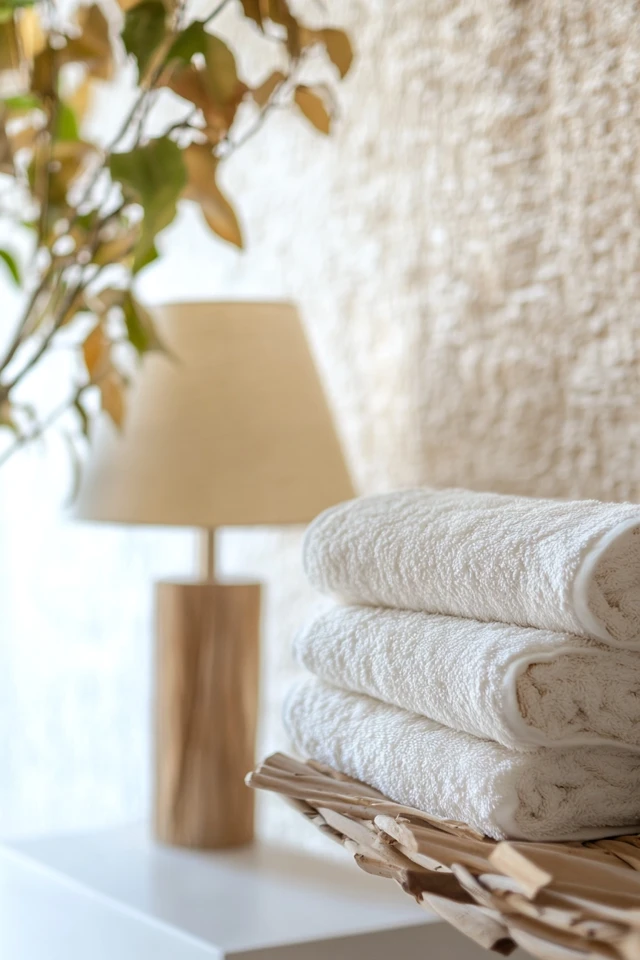
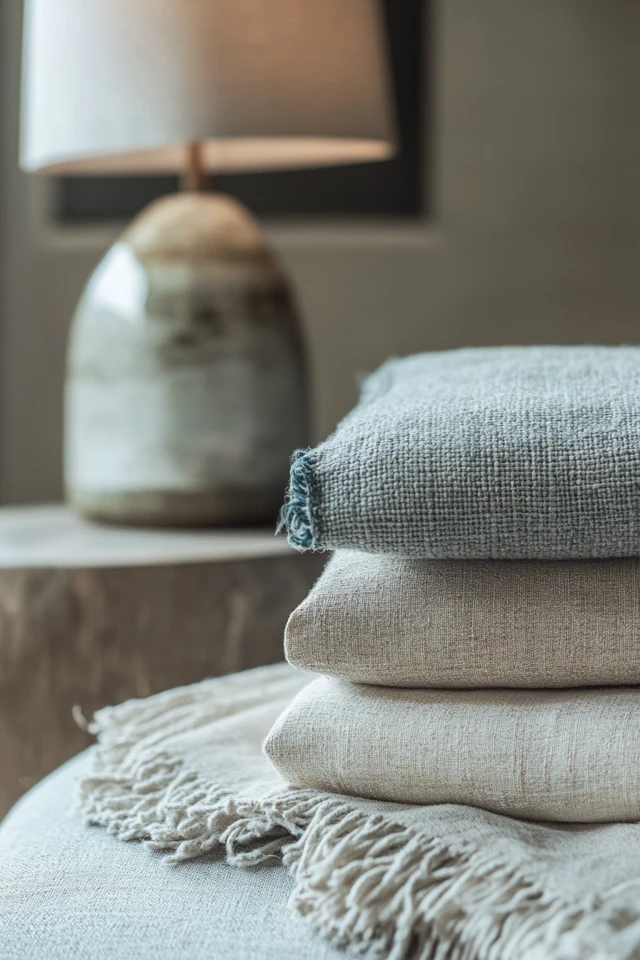

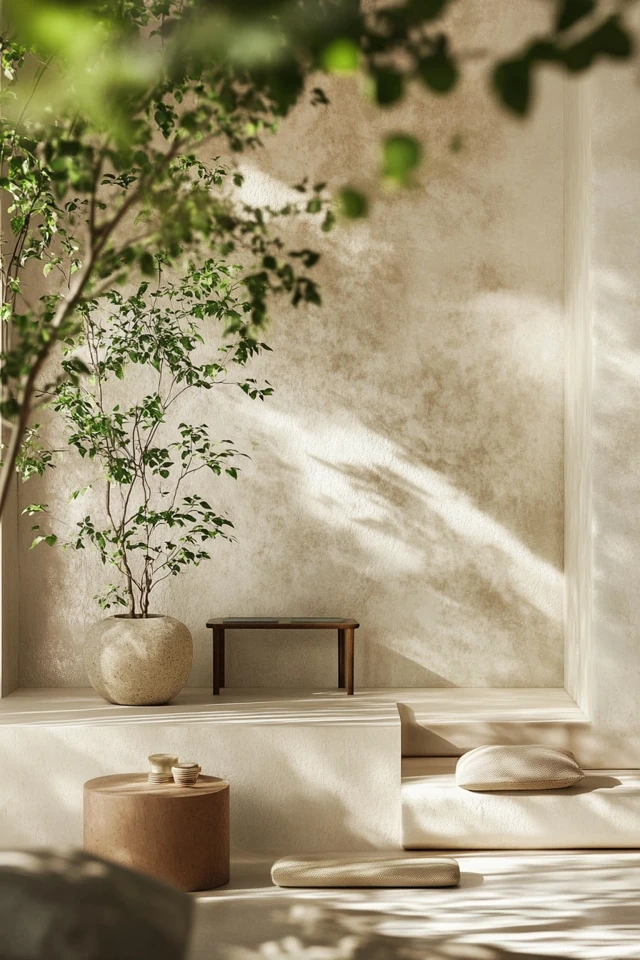
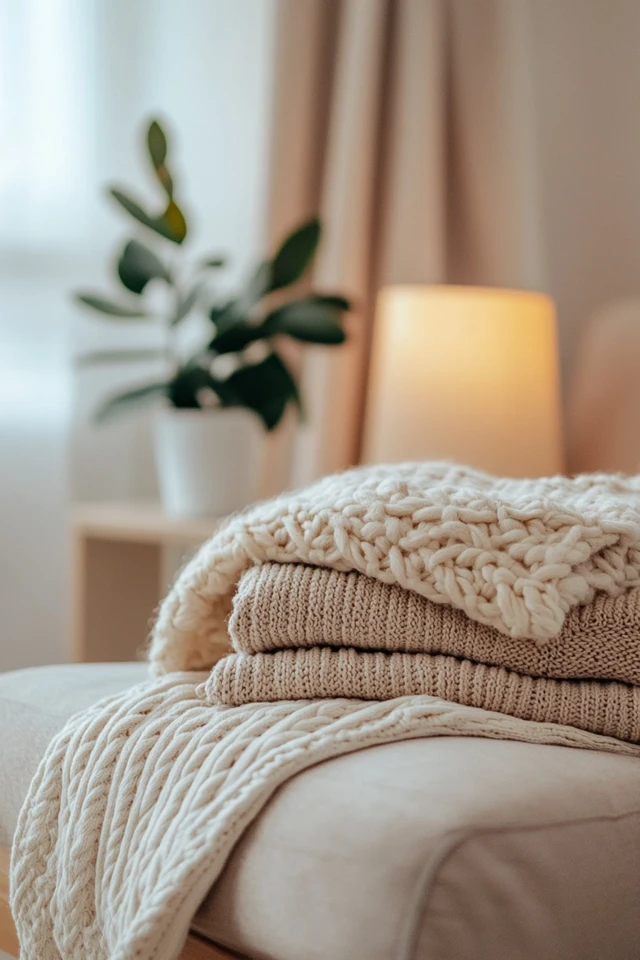

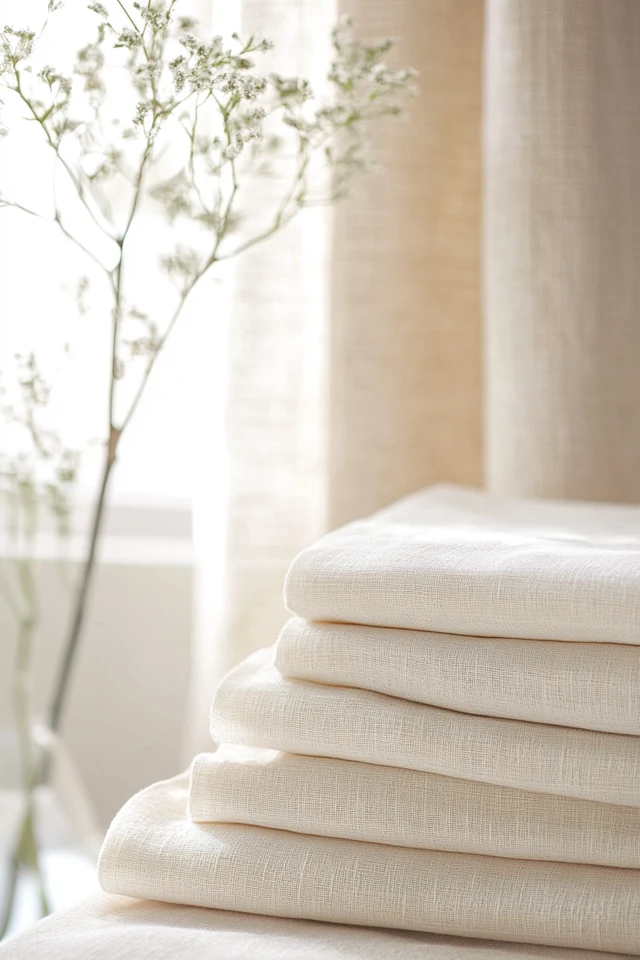
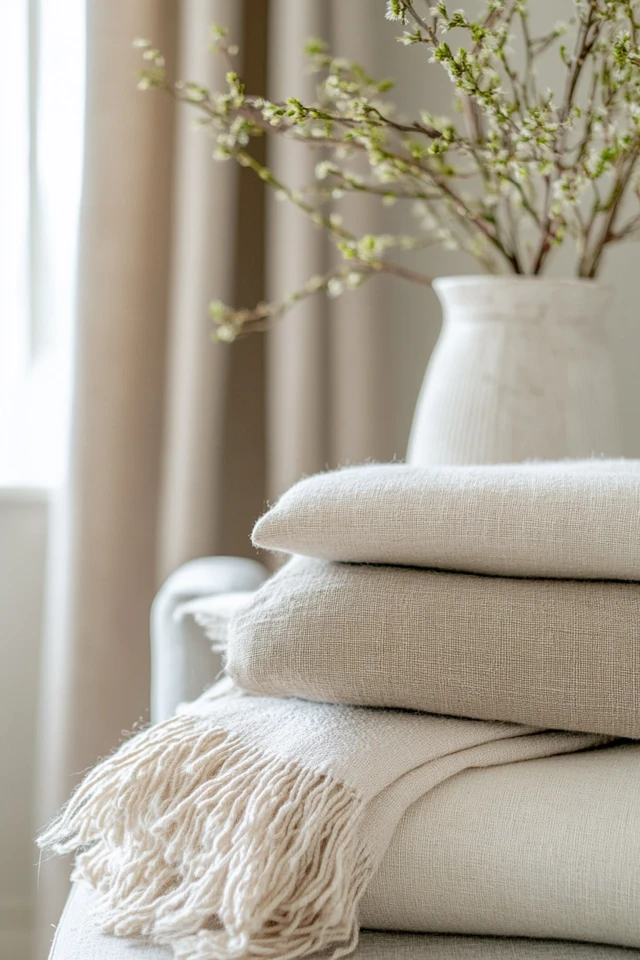
Conclusion
Styling a room for a tranquil, stress-free vibe is about creating a space that feels like a true retreat. By focusing on calming colors, soft textures, and thoughtful details, you can transform any room into a sanctuary that supports relaxation and well-being.
What I love most about this process is how deeply personal it is. Your tranquil space is a reflection of your needs and preferences, and there’s no one-size-fits-all approach. So light a candle, declutter your space, and take your first step toward a room that feels like home in the best way possible.
FAQ
What colors are best for a tranquil room?
Neutral tones like beige, soft gray, pale blue, and sage green work best for creating a calming atmosphere.
How do I keep my room stress-free in a busy household?
Focus on decluttering, designate your room as a “no-drama” zone, and add noise-blocking elements like rugs or curtains to create a sense of privacy.
Can I create a tranquil vibe on a budget?
Yes! Declutter first, then use affordable items like throw pillows, candles, and thrifted decor to enhance your space without spending much.
What’s the easiest way to make a room more relaxing?
Start with lighting—replace harsh overhead lights with softer, warm-toned options, and add candles or lamps for a soothing glow.
How do I balance minimalism with coziness?
Choose a few high-quality decor pieces and layer in soft, tactile elements like blankets and rugs to keep the room feeling warm and inviting.

